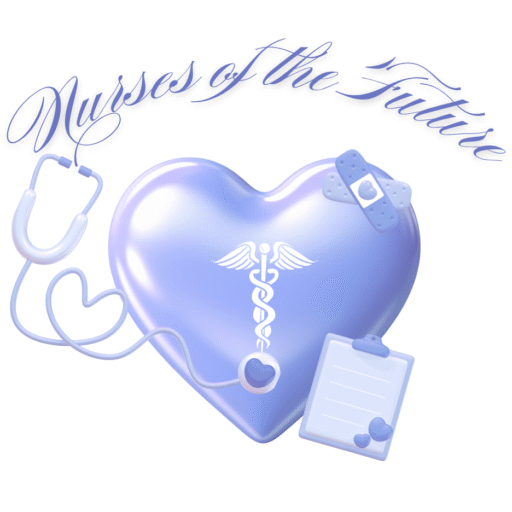By Linda Gerace

Burnout in the nursing profession is an occupational hazard related to prolonged
exposure to stress. In fact, nurses experience burnout at greater rates than other
healthcare professionals, and, likewise, in the U.S., the suicide rate among nurses is
higher than the general population. Burnout occurs from a combination of traumatic
events in the workplace along with systemic failures, like chronic low staffing, and
personal factors.
Nurse burnout is considered a public health crisis addressed by the 2022 U.S. Surgeon
General’s Framework for Workplace Mental Health and Wellbeing. Prolonged stress in
the workplace contributes to reduced wellbeing of nursing staff, which contributes to
burnout, and this affects quality of patient care and patient safety. Medical errors
account for almost 50% of hospitalized patients and are the third leading cause of
mortality in the U.S. Clearly, healthcare organizations should prioritize implementing
strategies to reduce stress and employee burnout.
The Physical and Emotional Toll of Nursing
While burnout rates are higher among nurses working in high-acuity environments like
intensive care units and specialized emergency and trauma departments, all nurses are
at risk for burnout. Job-related factors that affect nurses’ wellbeing include workload and
staffing issues, long hours, shift work, lack of autonomy, patient satisfaction, and office
atmosphere. Personal factors that affect nurses’ wellbeing include career satisfaction,
health status, and personal coping mechanisms.
The Maslach Burnout Inventory (MBI) is the most widely used research tool for
measuring burnout. It measures three indicators associated with burnout: emotional exhaustion, depersonalization (negative or cynical attitudes toward work), and reduced
sense of personal accomplishment. Of the three, emotional exhaustion is the primary
indicator pointing to burnout.
Signs of burnout that nurses should be aware of include the following:
- Feeling constantly overworked
- Feeling too tired to go to work
- No longer looking forward to your job
- Feeling unappreciated or like your work doesn’t matter
Other less common symptoms include trouble sleeping, tension in the body, and
feelings of depression.
What is Self-Care?
For decades, nursing has rated among the most trusted professions for
compassionately, tirelessly, and skillfully caring for their patients. Part of that care includes educating patients on basic health habits which include eating a healthy diet,
getting regular exercise, spending time every day in fresh air, getting adequate sleep,
and avoiding undue stress. Unfortunately, nurses often do not practice the healthy
habits they teach to their patients.
Besides the foundational health habits listed above, self-care includes other behaviors
that improve a person’s health and emotional wellbeing. Some examples of these
behaviors are listed here:
- Engaging regularly in hobbies
- Spending time with friends and family
- Practicing meditation or deep breathing
- Attending religious services
- Using positive self-talk and affirmations
- Practicing compassion and forgiveness towards oneself
Sociologists and psychologists use the term “self-compassion” to encompass many of
these behaviors and have found that self-compassion mitigates some of the effects of
burnout.
Benefits of Self-Care for Nurses
Since self-care is an antidote to job burnout, the benefits of self-care for nurses will
reverse burnout symptoms. Improvement in mental health ─ including decreased
anxiety and depression, enhanced physical well-being and stamina, increased job
performance, and higher quality of patient care with reduced medical errors.
Tips for Implementing Self-Care
If you feel like you are beginning to experience signs of burnout, what can you do right
away to help reduce an escalation of symptoms?
- Prioritize the basic habits for good health
When your body is in its best condition, you will be able to withstand more
stressors. Conversely, when you are under stress, improving your habits can
reduce the burden of stress. As stated above, those habits include proper
nutrition, adequate sleep, regular exercise, and spending time outdoors in fresh
air.
- Use mindfulness and stress-reduction techniques
Mindfulness practices increase positive thoughts, and positive thoughts decrease
feelings of burnout. Mindfulness apps can be used as self-care tools to combat
stress and burnout.
- Set boundaries
Boundaries combat burnout because they help people to decide how much
energy they want to preserve and how much to expend on a given task. In the
healthcare environment, setting boundaries can mean communicating your
needs clearly to supervisors, ensuring adequate breaks are provided, knowing
when to say “no” to additional work responsibilities or overtime, and changing
status from full-time to part-time or per diem, if possible.
- Seek professional support when needed
If your own efforts to reduce burnout symptoms seem to be failing, you may need
to seek professional support. Many workplaces offer free counseling services as
part of a benefits package for all employees.
Conclusion
Burnout is an unavoidable risk for many healthcare workers, especially for nurses. If the
risk stopped at burnout, the worst outcome might be a high turnover in the nursing
profession. Unfortunately, the risk doesn’t stop at burnout but also includes an
increased incidence of medical errors. To mitigate incidence of medical errors and other
patient safety violations, it is vital that nurses practice self-care whenever possible,
especially when burnout symptoms are noticed. This reduces stress, improves mood,
and increases job performance. Healthcare institutions have a duty to ensure that
nurses and other healthcare professionals are provided the knowledge and the means
to care for their mental, physical, and emotional health so that they can safely and
compassionately care for their patients.
References
https://journals.sagepub.com/doi/10.1177/08980101231181004?icid=int.sj-
abstract.similar-articles.2
https://pmc.ncbi.nlm.nih.gov/articles/PMC10608256/
https://pmc.ncbi.nlm.nih.gov/articles/PMC4998861/
https://pmc.ncbi.nlm.nih.gov/articles/PMC4938539/
https://www.nursingworld.org/content-hub/resources/workplace/what-is-nurse-burnout-
how-to-prevent-it/
https://www.nwhjournal.org/article/S1751-4851(18)30206-X/fulltext
https://www.nwhjournal.org/article/S1751-4851(24)00035-7/fulltext
https://www.researchgate.net/profile/Susan-Jackson-
5/publication/227634716_The_Measurement_of_Experienced_Burnout/links/59db6b904
58515b9fa49d4ec/The-Measurement-of-Experienced-Burnout.pdf
https://www.urmc.rochester.edu/behavioral-health-partners/bhp-blog/january-
2023/combating-burnout-with-boundaries

Thanks for sharing. I read many of your blog posts, cool, your blog is very good.